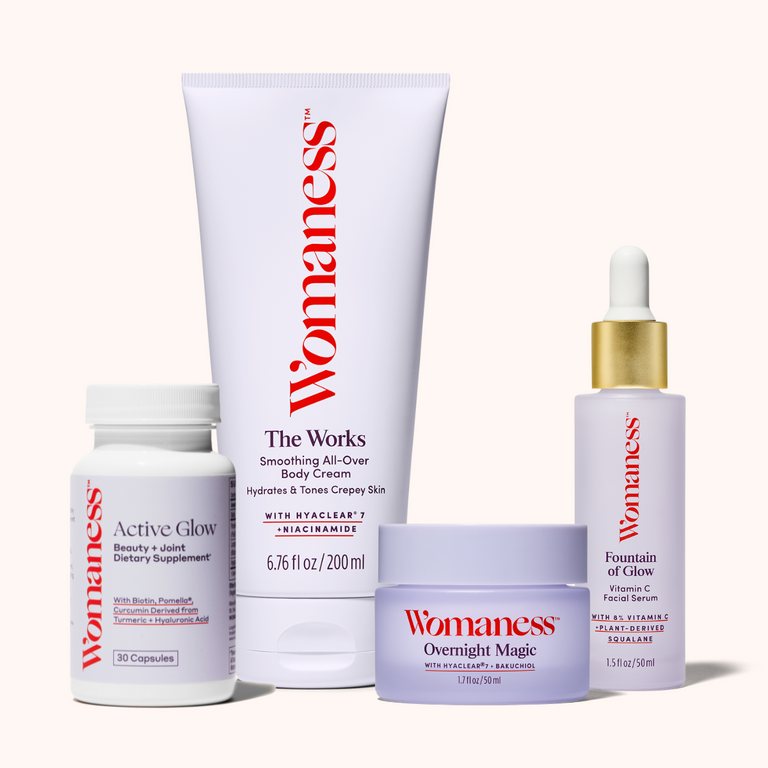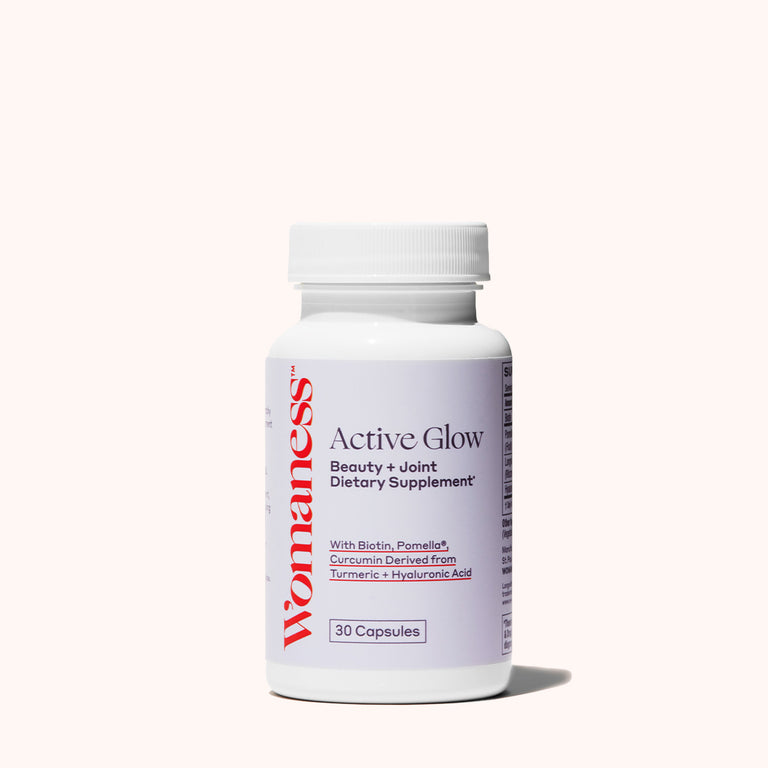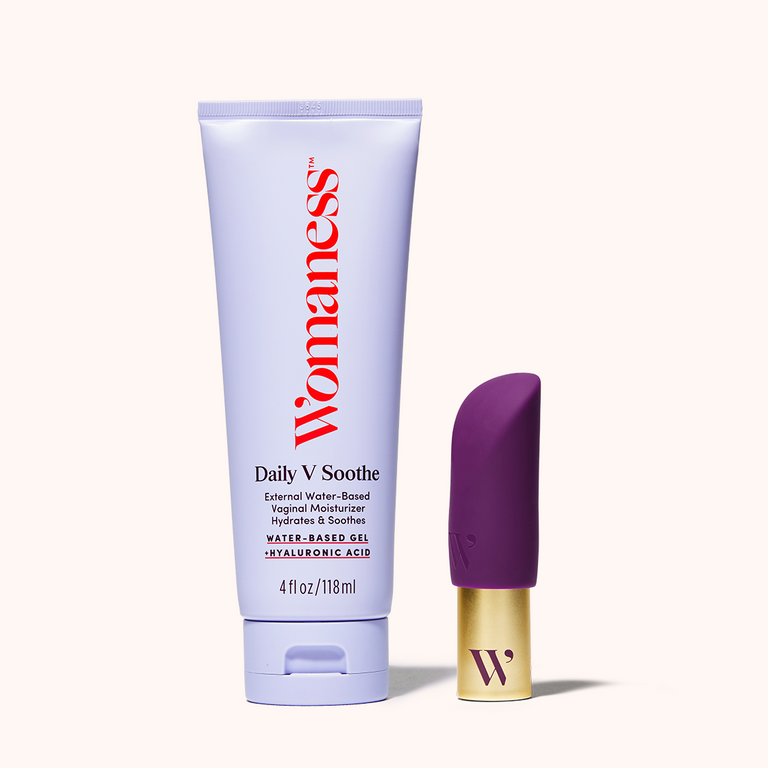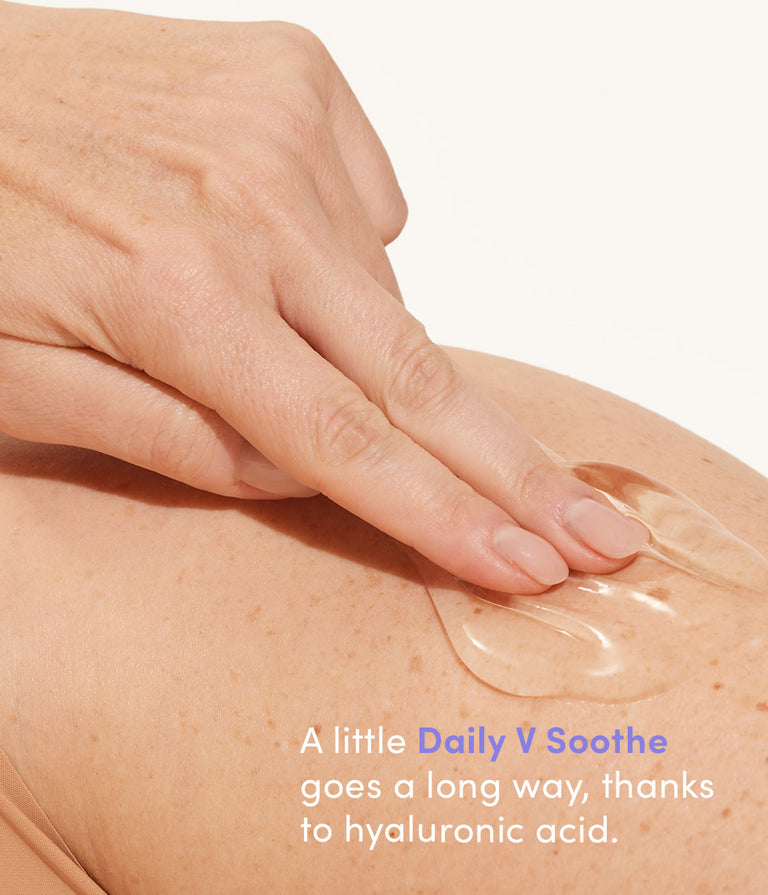By Womaness Editors 4-Minute Read
Dr. Abigail Armstrong is a Reproductive Endocrinologist and Infertility specialist at Kindbody Los Angeles. Her goal is to educate reproductive-age women about taking control of their family building options and consider preserving their fertility for the future. Click here to learn more about Dr. Abigail Armstrong and schedule your consultation today!
You’ve heard of egg freezing from friends, family, social media. It’s everywhere! But is it right for you, even if you're in perimenopause?
Oocyte cryopreservation (commonly known as “egg freezing”) is the only evidenced-based effective method to preserve our fertility. Effectively, undergoing egg freezing “locks in” your fertility potential at your current age.
We asked Dr. Abigail Armstrong, a Reproductive Endocrinologist and Infertility specialist at Kindbody Los Angeles, about the ins and outs of egg freezing. Here is what she said.
What is egg freezing or oocyte cryopreservation?
Egg freezing is the process of retrieving eggs from your ovaries and storing them now with the intent of having kids later.
What is the benefit of egg freezing?
It’s really the only method supported by evidence that preserves your fertility at your current age. We call this “fertility preservation.” Unfortunately, the probability a given egg can be fertilized into a genetically normal embryo degrades with time. This isn’t fair, but it’s a fact of our biology. Egg freezing circumvents this problem by banking young and healthy eggs now for use whenever you’re ready to have a family. You can think of this as a “cloud backup” of your fertility potential today - only this “cloud” is a canister of liquid nitrogen.
What is ovarian reserve?
Ovarian reserve means the number of eggs you have remaining (or “in reserve”). You can measure ovarian reserve indirectly through a blood test, Anti-Mullerian Hormone (AMH), and an ultrasound test called antral follicle count (AFC) - basically a picture of the number of egg follicles in your uterus. These tests give us a relative value of how many eggs are left in your ovaries. What we’d really like in the field is an absolute accounting of ovarian reserve, but science hasn’t figured this out yet.
Our ovarian reserve testing can predict your response to fertility treatments like egg freezing or IVF, but does not predict fertility itself. When we become perimenopausal, we still have eggs left in our ovaries; however, there are fewer, which can make the fertility preservation process more challenging, but not impossible. In perimenopause, we would expect a lower AMH and AFC level.
How does age affect fertility?
You had the most eggs in your ovaries when you were growing in your mom’s uterus—since birth, the number of eggs remaining in your ovaries has already started to decrease! By the time you started to have periods, you have already lost about 75% of these eggs, from about 2 million to roughly 500,000 eggs.
This may sound like a lot of eggs remaining, but there is an additional problem. As we get older, not just the quantity but also the quality of eggs in our ovaries declines. By quality, we mean the potential for an egg to produce a genetically balanced embryo. The best predictor of egg quality is age.
Egg freezing works because frozen eggs don’t age!
“Most women can carry a pregnancy up until age 50 as long as you are otherwise healthy.”
If I am perimenopausal, can I still freeze my eggs?
It becomes harder to freeze our eggs when we are closer to perimenopause because the ovarian reserve and quality are lower. However, each individual is different and it is ultimately feasible to freeze eggs depending on your biological age and ovarian reserve. It would be important to see a reproductive endocrinologist and infertility physician as soon as possible because time matters.
Why is egg quality important?
One goal of the egg is to divide its genetic material evenly as it produces more cells to build an embryo. Egg quality is directly related to your age: as your age goes up, your egg quality goes down. As we age, our genetic material effectively gets sticky. This makes it harder for the genetic material to separate equally during cell divisions. When the genetic material separates unequally, there may be gains or losses in the DNA of each new cell, which usually leads to early miscarriages or pregnancy loss.
How does the process of egg freezing work?
First, you should establish care with a fertility specialist. We try to come up with the best protocol for each individual patient. The actual process of egg freezing consists of a series of self-administered hormone injections and culminates with an egg retrieval procedure done by your fertility specialist.
Each month, your brain sends hormones to your ovaries to stimulate a single “follicle,” a bubble-like structure that houses and grows a microscopic egg. We teach you to give yourself injections of these same hormones in your belly for about 9 to 12 days to stimulate growth of multiple follicles.
We closely monitor your response to the injections based on hormone values and how your follicles grow, which we can see with ultrasound. We may adjust your dosing during the cycle to get the process just right.
Once your follicles are large enough, you take a final injection to mature the eggs. About a day and a half later, your eggs are ready to be retrieved.
What does the actual procedure entail?
The egg retrieval is a 15-minute procedure where we retrieve the follicles from your ovaries under ultrasound guidance.
The procedure team consists of your fertility doctor and a dedicated embryo expert called an embryologist. As the follicles are retrieved, the embryologist gathers the microscopic eggs from the follicle fluid. The collected eggs are then frozen the same day.
Does collecting so many eggs lead to earlier menopause?
No. We are saving follicles that would otherwise have been lost. This definitely does not accelerate menopause.
How does the egg freezing process make me feel?
Different people feel different during the process. In fact, some women feel great with elevated estrogen levels! Most women, however, have PMS-like symptoms such as fatigue, bloating, nausea, headaches. Some may also have pain or bruising at the hormone injection site.
“I would recommend an ultrasound of your ovaries and an anti-mullerian hormone to evaluate your ovarian reserve, as everyone is different.”
What about risks or limitations?
You cannot have intercourse or do vigorous exercise during the egg freezing process. This is because your ovaries get large and heavy. With bouncing-type activity, they can twist on their blood supply. This can cause a surgical emergency. If you’re a marathon runner (or a HIIT enthusiast, like me), just know these activities will have to be on pause during your egg freezing treatment. There is also a small risk of overstimulating the ovaries, and a theoretical risk of blood clots.
What are the downsides?
Really there are three downsides. The first is cost—although thankfully, many employers are increasingly providing fertility benefits. Second, is emotional and physical load—this can be an overwhelming process, but it is short-lived. Finally, some may never need to use their frozen eggs!
How old is too old to freeze my eggs?
It is best to freeze your eggs when you are younger so you can maximize egg quality and quantity. Success rate of using your eggs is dependent on age. By the time you get to be more than 43 years old, the chance of success is around 5%. However, I would recommend an ultrasound of your ovaries and an anti-mullerian hormone to evaluate your ovarian reserve, as everyone is different.
How old can I be to carry a pregnancy?
The eggs can be frozen indefinitely with little impact on their quality. When you are ready to become pregnant, we thaw the eggs, fertilize them, and grow them into embryos before placing them back in the uterus. Our body’s ovaries (and eggs) age much more quickly than our uterus. Most women can carry a pregnancy up until age 50 as long as you are otherwise healthy.
So, should I freeze my eggs?
Look, societal demands are rough these days. We’re expected to follow our passions into a demanding career, find the perfect partner, and build a financial base before we’re even supposed to think about having a family. We spend so many years trying not to get pregnant - and then, when we’re ready, many women find that they have difficulty doing so. Egg freezing is one potential solution to that problem.
One great thought experiment is to ask yourself these three questions:
1. How many kids do I want to have?
2. How old will I be when I’m ready to have my first kid?
3. Assuming a couple years between each kid, how old will I be when I’m ready to have my last kid?
Fertility preservation should also be discussed for all reproductive-age women undergoing chemotherapy and radiation. Moreover, fertility preservation may also be right for patients considering transitioning.
Click here to learn more about Dr. Abigail Armstrong and schedule your consultation today!
Get More Answers
Ask a Doctor: "How long does perimenopause last?"
Ask a Doctor: "Will my fibroids shrink in menopause?"
Ask a Doctor: "How do I know I've reached menopause if I'm on the pill?"






